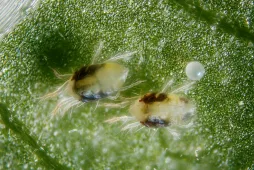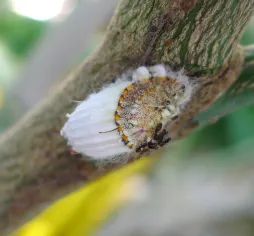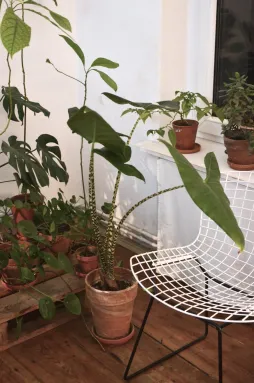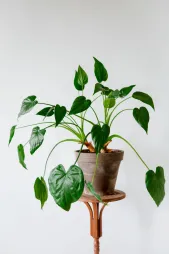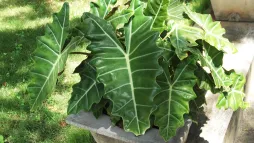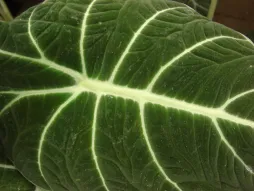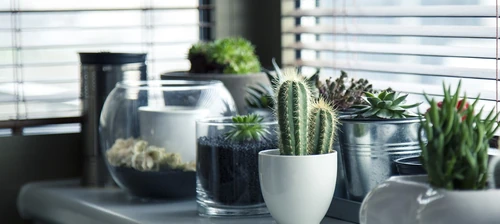Alocasia 'Polly', a small elephant ear plant
You're more likely to come across Alocasia amazonica Polly at your favorite florist than in a Philippine forest. The plant is a dwarf variety of Alocasia mortfontanensis, a hybrid between Alocasia longiloba and alocasia sanderiana.
How to recognize Alocasia amazonica 'Polly'?
Alocasia 'Polly' is an upright perennial. Smaller than alocasia zebrina, it still reaches a height of 80 centimetres.
The short stems grow from a rhizomatous, tuberous root. They are extended by one or more long, fleshy petioles.
They support the tough, saggy leaves. They measure up to 40 cm long and 20 cm wide. Bright green, with cream or silver veins and wavy margins.
Indoor plants rarely flower. If you can find the right light and humidity conditions, you may see a spadix with white flowers surrounded by a spathe.
The sap of Alocasia amazonica 'Polly' is toxic to humans and animals if ingested. It can also cause skin irritation.
Our maintenance tips
Alocasia 'Polly are not plants to be placed in everyone's hands. They need light, rich soil, a little knowledge and a lot of attention.
Watering
Alocasia 'Polly appreciate freshness. Their soil must be kept slightly moist in spring and summer. But the plant doesn't like excess. Be careful not to soak the substrate!
Provide water at room temperature, without lime. You can, for example, collect rainwater or use filtered water.
Once you've watered your Alocasia × amazonica 'Polly', empty any stagnant water from the saucer or planter. It may rot the roots.
Spray
Your Alocasia × amazonica 'Polly' appreciates moisture on its foliage. Spray it regularly with non-calcareous water to improve humidity.
Repotting
In spring, transfer your Alocasia × amazonica 'Polly' to a larger pot, so that it can continue to grow.
Soak the root ball of your Alocasia 'Polly in water at room temperature. Meanwhile, mix ordinary potting soil with river sand or perlite.
In a perforated pot, pour a bed of clay balls or gravel to promote drainage, followed by a layer of soil. Plant your Alocasia 'Polly in the center and top up with the rest of the substrate. Press down and water for the first time to ensure good root contact with the soil.
Fertilization
You can stimulate the development of your plant during its growth phase, in spring and summer, with fertilizer.
Dilute green plant fertilizer with water.
Cleaning
The leaves of your Alocasia 'Polly accumulate dust. It interferes with photosynthesis and encourages the appearance of parasites. Clean them with a clean, damp sponge.
Remember that alocasia 'Polly is toxic. Wear gloves when dusting.
Cutting
Cutting is carried out during the strong growth phase, generally in spring and early summer.
After a few years, young shoots appear at the base. With a sharp knife, dig up one of these "babies", also removing its roots.
Prepare buckets with potting soil similar to that used for adult plants. Translucent pots are best. You'll be able to monitor root growth.
Place the bulbils on the surface, flat side down and pointed side up. Water and then place your bulbils in a greenhouse or transparent crate.
Diseases / Threats
Information
| Family | Araceae - Araceae |
| Type | Alocasia - Alocasia |
| Species | Alocasia × mortfontanensis - Alocasia × mortfontanensis |
| Lifecycle | Perennial |
| Foliage | Evergreen |
| Exposure | |
| Substrat | |
| Planting methods |
In pots In tubs |
| Categories | |
| Tag |
Toxic |
| Origin |
Southeast Asia |
| Hardiness (USDA) | 11b |
| Leaf color |
|
| Flower color |
|
| Fruit color |
|
Discover plants from the same family











